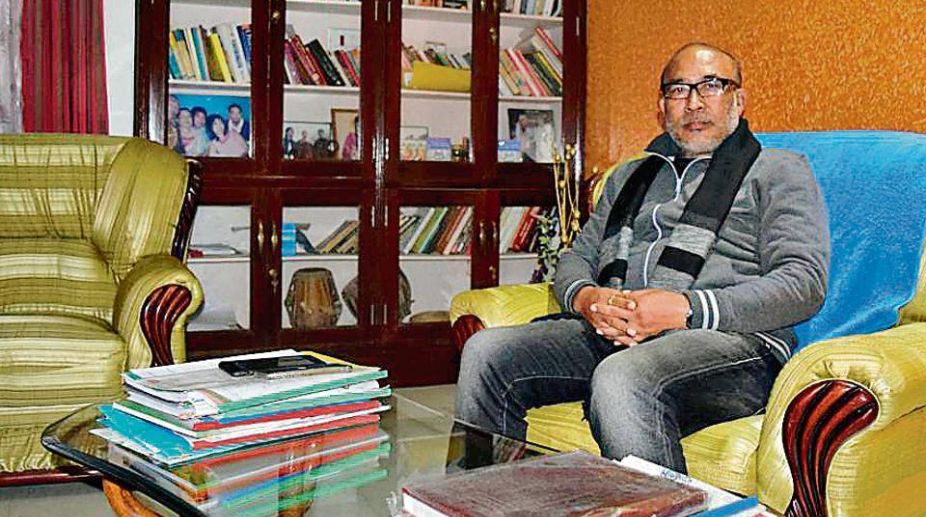Manipur Crisis
The imposition of President’s Rule in Manipur has reignited fierce debates about the state’s future, exposing deep ethnic and political fault lines.

N Biren Singh (Photo: Facebook)
A footballer while serving in the Border Security Force, Manipur’s BJP chief minister N Biren Singh may or may not have goals to his credit but within 100 days of assuming office he scored a political hat-trick.
His first task was to lift the 139-day indefinite economic blockade of the state’s two vital national highways, imposed by proNSCN-IM Manipur-based United Naga Council in protest against outgoing chief minister Ibobi Singh’s decision to create a separate revenue entity for Kukis in the predominantly Naga district of Senapati.
Advertisement
Then he visited Ukhrul district, a “no-go area” for the former chief minister as he had antagonised the Tangkhul community, to which NSCN-IM general secretary Th Muivah belongs, by stopping him from entering Manipur in May 2010 while he was on his way to visit his native village. There, Biren announced a development fund and also the holding of an annual Siroi Festival (a rare lily grown only in Ukhrul’s upland areas) and also confirmed it will be state funded.
Advertisement
Whether all this will help restore the age-old relations between the two communities remains to be seen but it makes no sense to not allow Muivah to breathe the air of his native village. Biren’s third significant move was to go to Churachandpur, where in September 2015, the passing of the three Inner Line Permit system-related bills by the assembly, led to clashes and deaths of ten protesters.
The bodies had been lying in a local morgue since then, in support of a demand for justice for their killings. The families were given decent compensation and also promises of government jobs. Among the Northeast chief ministers, the head of Manipur’s government undoubtedly has the most challenging job.
The state has more than a dozen active rebel groups and was torn apart in the early 1990s by the bloody ethnic feud between Nagas and Kukis. They are still at loggerheads. Over the past two decades the state suffered several indefinite economic blockades.
The state capital can never boast of basic amenities like uninterrupted electricity supply and drinking water. The continued use of the Armed Forces (Special Powers) Act since 1979-end has merely alienated the people.
Biren’s ministry is propped up by two parties having four members each. His (rather the BJP’s) popularity will depend on how dexterously he handles the UNC’s demand for the roll-back of the Ibobi government’s creation of a new district at Kangpopki weeks before the March assembly elections.
The Naga-Kuki tension over the issue since1982 has been an impediment in MeiteiNaga relations as well.
Advertisement